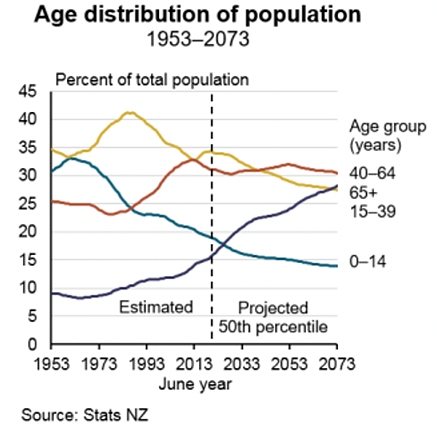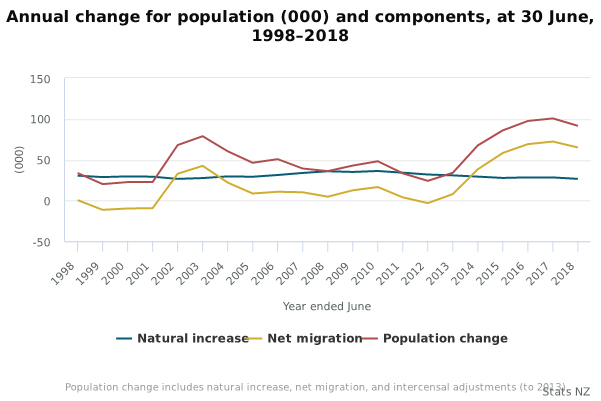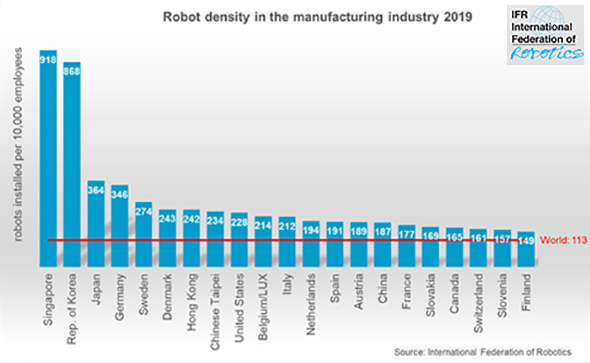
By Alison Brook*
It is very difficult to sustainably grow GDP unless the workforce is also growing at a reasonable rate. Labour force growth in OECD countries contributed one-third of the total economic growth between 1960 and 2015. Since then, many countries have entered a labour-scarce environment, with some countries like Korea, Japan, Germany and Italy already shrinking.
Working-age population past its peak
Economic growth in the developed world grew strongly from the end of WWII to the 1980s, fuelled by an increasing working-age population. Since then, the working-age population has been declining in many advanced nations.
The trend is expected to accelerate as the baby boomers reach retirement age. Despite living longer and healthier lives, the peak impact of baby boomers' retirement is expected to hit in 2030. However, population ageing is not just caused by the ageing baby boomers, but also by the demographic transition to lower birth and death rates.
As with most of the developed world, New Zealand’s population is ageing, which will result in a slower labour force growth than in prior decades. The median age of New Zealand’s population is projected to be 40 years by the early 2030s, up from 25.6 years in 1970.
Not only will the population age, but the rate of aging is expected to increase. According to Bain & Company, the coming decade will see those aged 65 and older increasing faster than the working-age population in OECD countries for the first time in history.

Labour force growth through immigration
New Zealand has had record levels of immigration over the last decade which has turbo-charged our population growth. Higher migration levels have accounted for 30 percent of population growth since the early 1990s.
COVID-19 brought the country’s immigration system to an abrupt halt as borders were largely closed to international arrivals. Now, the government has announced an immigration “reset” and has indicated that it will review the largest residence category–the skilled migrant category. Economic and Regional Development Minister Stuart Nash advised businesses who have relied on migrant workers in the past to "come up with creative and innovative ways to attract local talent and to explore alternative ways to produce your goods and services".
This doesn’t offer a lot of comfort for employers already struggling with labour shortages. But what about the effect of immigration on long-term economic prosperity? While migration tends to increase the proportion of working-age population, the literature for the long-term benefits or otherwise of migration is not clear-cut. The OECD economic survey in 2019 pointed to small positive effects of long-term immigration on per capita incomes. However, temporary migration, which accounts for 60 percent of migrant arrivals in New Zealand, tends to have small negative effects, particularly on low-skilled New Zealand workers.

Productivity growth through automation
According to OECD analysis, actual productivity growth rates in many regions have been lower than the growth required to maintain per capita GDP levels in recent years. A study by Bain & Company estimated that to fully offset the decline in labour force growth in the OECD productivity growth would have to be 54 percent higher than it has been from 1995-2015.
Faced with increasingly scarce labour, many companies are turning to automation to boost productivity. It’s no surprise that many of the countries with the most pressing labour shortages also have the highest adoption of robots.

Technology adoption requires access to capital, something that New Zealand’s mostly small businesses have traditionally struggled with. It also requires a population that embraces technological change. According to a 2020 report from the Productivity Commission, New Zealanders are not yet convinced that emerging technologies like robots and AI will be a good thing either for the economy or for society. This public perception may be holding business leaders back from investing more in automation, particularly if it might be at the cost of workers’ jobs.
Low productivity growth seems like an intractable problem, but it's a problem we need to solve if we don’t want to see our standard of living slide. Unlike in past decades, it’s clear we can no longer rely on an abundant workforce. With a dramatically different labour market, automation may hold the only key to our future economic prosperity.
*Alison Brook is from the Knowledge Exchange Hub at the Massey University campus at Albany, Auckland. She is on the GDPLive team. This article is a post from the GDPLive blog, and is here with permission. The New Zealand GDPLive resource can also be accessed here.
34 Comments
Bollocks.
Interest.co.nz, please contemplate removing this column, or point out to them their fallacies.
https://www.sciencedirect.com/science/article/pii/S0921800919310067
Firstly, labour is less that 1% of work-done globally, and - we may presume - here. Thus you can double and double again labour productivity, and it will make diddly-squat difference. Actually, productivity is the ratio of energy and resource inputs, to outputs. That ration is merely one of energy efficiencies; Carnot and the Second Law apply. And, of course, they follow a law of diminishing returns as we cherry-pick the low-hanging fruit and come ever-closer to those real limits. Automation is really just another energy-efficiency - and an avoidance of the resource/energy supply problem.
Also, this piece fails the per-head test. That's prima-facie stuff, given that it's per-head we are wealth-obtaining. In actual fact, of course, access to energy and resources is the true wealth; less people therefore means MORE per-head wealth.
And this from academia - even after prompting.....
Nah, we need more people to maximize the chance of discovering the next breakthrough.
we arent stopping it only having a reset for immigration,skilled migrants only.otherwise we will have to shut down our health system as they make up about 50% of the doctors and nurses.maybe we should index our wealthy investor category 10 million is becoming a paltry sum to buy a psssport and lifetime free healthcare and education.larry page probably got a million back on his trip here.
Probably.
Tell me why all the NZ trained doctors and nurses are migrating out of NZ again. Oh yes that's right, they refuse to worship at the altar of the boomer property ponzi. But hay...let's protect those capital gains above all other things in the economy. #dontgetsick.
Perhaps future medical insurance will cover the flights and accommodation to see NZ doctors in Aussie?
Fun fact: Sooner or later, everyone becomes a boomer...
Wrong question!!! The right question is 'How could productivity help us improve the standard of living of all New Zealanders without destroying our country and the planet?' Our wellbeing could increase dramatically at the same time as we reduced production / consumption - meaning GDP would actually fall.
(Kuznet): "Economic welfare cannot be adequately measured unless the personal distribution of income is known. And no income measurement undertakes to estimate the reverse side of income, that is, the intensity and unpleasantness of effort going into the earning of income. The welfare of a nation can, therefore, scarcely be inferred from a measurement of national income as defined above"
You need skilled immigration. If you don't have it they go next door and you get left behind. Badly.
Behind what?
Assumptions.......
I remember being told we need high rates of immigration and tourism otherwise our economy would grind to a halt. Yet here we are, in a COVID world with little tourism and no immigration, things humming along quite nicely thank you very much. Who'd have thought it.
Nicely perhaps except for infrastructure which is breaking under the strain.
Hospitals overloaded, roads in disrepair , traffic chaos, ballooning housing prices, housing shortages, increased poverty.
Sums up the impacts of rampant population growth nicely.
Yet here we are, in a COVID world with little tourism and no immigration, things humming along quite nicely thank you very much.
Temporarily, yes. But check back in a few years of being closed off to the world and things may not look so rosy.
Totally agree that productivity has to seriously improve. Growing our population has done bugger all for productivity - in fact much evidence for making things worse. If I was the philosopher king of Aotearoa I'd refocus all policy on improving productivity and GDP per capita. For too long policy has focused on total GDP growth which gives short term gains but long term pain - as we are experiencing now.
A focus on productivity and GDP per capita could be achieved by doing more intensive farming, increasing the use of phosphates etc, destroying the sea floor, shipping over slaves, automating jobs, setting up workhouses for the poor and introducing involuntary euthanasia for the over 70s. Sounds great.
Ok, some fair points regarding environment hence as philosopher king I'll add high levels of environmental protection and societal wellbeing to my policy refocus - athough improved productivity generally improves people's livelihoods. But slaves and sweatshops reduce productivity - that's why the south lost the civil war. Automation though is great - we need to bring back the enthusiasm of the 50s and 60s when everyone thought we'd be relaxing while the robots did all mundane, dirty and dangerous jobs we don't want to do.
"It is very difficult to sustainably grow GDP unless the workforce is also growing at a reasonable rate."
What utter rubbish. There are a lot of the most wealthy and fastest growing economies that have shrinking populations. If you maintain even only the same industrial output with a shrinking population then per capita we are all better off. A lot of these countries are doing a lot better than just treading water and significantly increasing industrial out put. How you do this is by being smart and increasing productivity. The population growth dependent model is the dumb low wage, low productivity model as we have been experiencing for decades. Where is it getting us? A further advantage of a shrinking population is that we have to spend far less on increasing our infrastructure to service a growing population. The labor force can then be re-directed to industrial out put. Finally the world needs to face up to the fact that there are far too many people for the environment. Population is the single largest factor in global warming and we all need to face up to this if we wish to survive on this planet. This includes NZ.
My first observation is that, internationally, GDP per worker seems to correlate closely with fixed capital investment per worker (Fig. 2):
https://www.globaldemographics.com/education-and-investment
I've never seen the argument convincingly supported that working age population really has a large influence on productivity per capita. It's one of those things often stated but when you look at data within the OECD the old age depending ratio (OADR) doesn't correlate to per capita GDP at all. That data just doesn't strongly support that argument.
Good article. Doesn't assume a stable population is bad. Which is unusual.
The whole GDP growth mantra is wrong. In that it assumes being busy makes us wealthy.
Lets aim for a high income nation, avoid increasing population, and working productively but not busy.
Its inconvenient though that the higher the income the more resources a person/country consumes. Makes you go hmmm.
It's like that with colonisation; bring more energy to the fight (bigger projectiles, thrown harder/more often) and you win.
But the bigger-throwers are the least sustainable, culturally.
Not that going back to pre-European Maori ways would solve our dilemma; keeping slaves for labour and meat, probably ain't the best approach long term.
I think you may have criticised Maori culture there. Tsk tsk.
I’ve started watching Cathy Woods weekly chats about the businesses that they invest in and it’s eye opening and exciting. The next stage of innovation is definitely getting closer to the middle of the S curve. Slowly, slowly then all at once. We are a bit too concerned with the old ways of doing things with very little innovation that I can see. Too much time spent buying a selling houses but no innovation in the building sector. Think we’ve got our priorities wrong. Before we know it we’ll just be an out of date outpost for billionaires.
I agree. Companies measure ROI and ROC, they see having more employees as a disadvantage.
I think Nikko-NZ have an ARK relationship locally.
Also, there's this.
So ASB the largest bank who’s lending book is made up of mainly mortgages has teamed up with Blackrock who are currently buying up huge amounts of homes in the US by paying 30% more than the locals. Forcing many to either move area or rent for life. Are we going to stand for this in New Zealand? Yeah nah she’ll be right….. won’t happen here!
Firstly, ASB is not our largest bank. ANZ is. Nor does ASB have our largest mortgage book. (Kiwibank does, proportionately.) Secondly, ASB's mortgage book isn't in any partnership with BlackRock. ASB has contracted with them for some aspects of KiwiSaver fund management. Silly, cheap conflating these links shows the shallow thinking and analysis of a conspiracist. Don't try an build some consiracy that is not there.
If productivity improvements are made via technology and automation there shouldn't be too much impediment.
In NZ housing = Economy.
So housing growth is economy growth and seriously does age matters. Hats off to Orr and Jacinda to promote economy that will not have impact of ageing population.
Did the author of this article not read this? https://www.newstalkzb.co.nz/on-air/mike-hosking-breakfast/audio/kris-f…
The government has caved. Again.
Despite saying they are resetting immigration: https://www.beehive.govt.nz/speech/immigration-reset-setting-scene. They will just open the floodgates asap I reckon.
Yes, we can have growth without needing to import labour from off-shore IF NZ is willing to modernise and automate. Invest in companies of the likes of Scott Technology to give them the boost up to bring affordable automation to NZ companies and a lot of the issues with labour will be addressed.
Productivity doesn't go up by just importing foreign labour. It goes up with an educated and modern workforce. If you look at the stats, productivity over the past 100 years has shot up astoundingly but wages growth has been slow since the 1970s. While there is never any clear cut simple solution, one of the things that has worked is better wages and conditions for existing labour, not adding more labour. Adding more labour, especially cheaper labour from overseas, just depresses wages for those already here. Not to mention plenty of overqualified people come in and can't get a job...
And importing rich investor types doesn't do squat for NZ unless they create companies and more importantly, jobs here in NZ rather than just some import business that ships revenue off back to their own countries, or those who flip properties just to bring the $$ back to their country so hey can retire there.
You didn't read my post at the top of the thread, did you.
Productivity gains are really energy efficiencies; they will run into limits. Tailing off in the direction of 'none', was entirely predictable. What is more frustrating, is to see a post like yours, after what I'd put up earlier.
So what should we do instead? Everything we do depletes energy and resources doesn't it? How do we escape that?
Automation and robotics do not simply improve efficiency, their advancement may allow a move in to space. Space is a hostile environment, but machines can operate there and once we have sufficiently competent robotics - our solar system has large energy resources.
After that we'll have maybe 7 billion years to work out the next step.
Interesting but you have missed a very important point: There are hundreds of thousands of people wasting there lives on a bloated welfare system.
New Zealand deserves the truth?
Who's receiving a benefit, Not 4% unemployment, figures are fudged.
New Zealand’s welfare system provides income and other support services to a range of New Zealanders who find themselves in difficult situations.
Over 1,230,000 New Zealanders receive some form of welfare payment over a year (excluding superannuation)
282,000 of these people are working. Recipients with a health condition or disability make up 54% of all main beneficiaries.
377,410 working age people receive a main benefit.
13.4% of the working age population received a main benefit (these numbers do not include those receiving Working For Families tax credits).
479,283 people receive the Accommodation Supplement; 19% are non-beneficiaries.
Over 520,000 hardship assistance payments were made in the June 2021 quarter. Food has consistently remained the main reason for needing this support

We welcome your comments below. If you are not already registered, please register to comment
Remember we welcome robust, respectful and insightful debate. We don't welcome abusive or defamatory comments and will de-register those repeatedly making such comments. Our current comment policy is here.